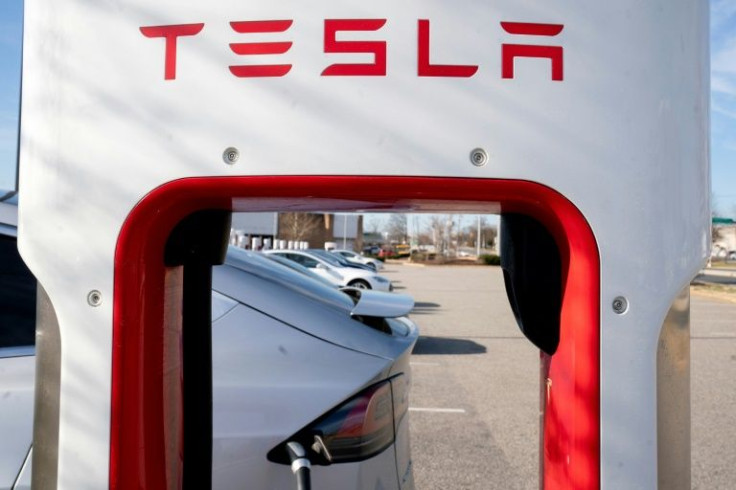Tesla Is Winning The EV Race, But For How Long?

Supply chain woes may have stopped traditional vehicle makers from keeping up with consumer demand, but not Tesla.
Over the weekend, the electric vehicle maker (EV) reported that it delivered 310,000 vehicles in Q1, 2022, despite logistic setbacks and critical components shortages. That beats the old record of 308,600 vehicles in Q4, 2021, and it's close to 80% higher than the Q1, 2021 deliveries, which was nearly double the deliveries a year earlier.
Apparently, there's a strong demand for EVs, and Tesla can fill it up by scaling up its operations. And that's music to the ears of Tesla bulls, which has been chasing its shares on Wall Street. The scaling of operations is crucial for cutting EVs costs and prices so they can cross the "tipping point," reaching the mass market.
But how long can Tesla's winning race last? It depends on how quickly the competition from traditional automakers and EV start-ups will be catching up with the EV pioneer at home and abroad.
For years, traditional automakers stayed on the sidelines of the EV market for a couple of reasons. First, they wanted to see whether EVs gain acceptance among consumers. Second, they didn't want to spend heavily on new products that would undermine their core products and turn the old production lines obsolete.
But now that EVs have won consumers' hearts and wallets, conventional automakers are coming out with their own EVs. For instance, Ford has developed an electric version of the F-150 pickup truck, hoping to turn it into the Tesla of electric pickup vehicles (EVs). Meanwhile, Volkswagen, GM, Porsche, and Mercedes have introduced their own EVs. And so are start-ups like Rivian and half-dozen Chinese start-ups.
Still, Tesla maintains the competitive edge, according to Gavin Harper, Research Fellow at University of Birmingham. "One of Tesla's breakthrough innovations was to leverage the massive economies of scale that come with the production of consumer format 18650 cylindrical cells, used widely in many applications, to be able to achieve high performance electric vehicles with a price range that was attractive to consumers," he said. "This resulted in a step-change in performance over the automotive industry's previous efforts."
Tobias Rawcliffe, Head of Marketing at Number 1 Plates at Tobias Rawcliffe, is on the same page. "Tesla currently has a couple of advantages in the market," he said. "Firstly, they were the first electric vehicle brand to hit critical mass. It's difficult to have a conversation about electric cars without mentioning Tesla. Secondly, they are built with a strong personal brand behind them in Elon Musk. Amongst other things, these two factors have helped them skyrocket."
Nonetheless, Tobias is skeptical about whether those factors are enough to ensure a continuation of Tesla's growth. "We're of mixed opinion on this," he said. "Other car manufacturers are catching up with electric vehicles, that's for sure. It's unlikely that the likes of Ford, BMW, and VW will roll over and allow Tesla to be such a dominant force for too much longer. If one of the older established brands don't impact Tesla, it's likely a newcomer will."
Meanwhile, there are concerns about Tesla's battery technology that may undermine the competitive advantage it has enjoyed thus far. "Tesla has developed its own battery formats," Harper said. "However, thinking about a circular economy of battery materials, the complexity of Tesla's packs may limit options for recycling at the end of the packs' lives."
Then there's competition from Chinese EV makers, which seem to have a better process in dealing with battery materials costs. "Chinese EV makers have highly vertically integrated supply chains, and it is apparent that they are already giving detailed thought to how to recover materials at the end of life from battery packs," Harper said. "When you look at the Cell to Pack designs that are coming out of firms like BYD, it is clear that they are a simpler design which will be easier to manufacture and also easier to recycle at the end of their lives."
In short, Tesla's chances of winning the EV race aren't assured. At a minimum, the market will become fractionalized, with traditional automakers and newcomers grubbing a slice of the market, as was the case back in the early days of the traditional automobile industry. And that could cool off Tesla's feverish growth, even if it manages to maintain its leadership in the EV market.
Will a slower sales growth cool off the investor hype for Tesla's shares on Wall Street? It remains to be seen. But judging from the performance of Tesla's shares following the Q1 deliveries report and their astronomical valuation, it may be a long wait.
© Copyright IBTimes 2025. All rights reserved.






















